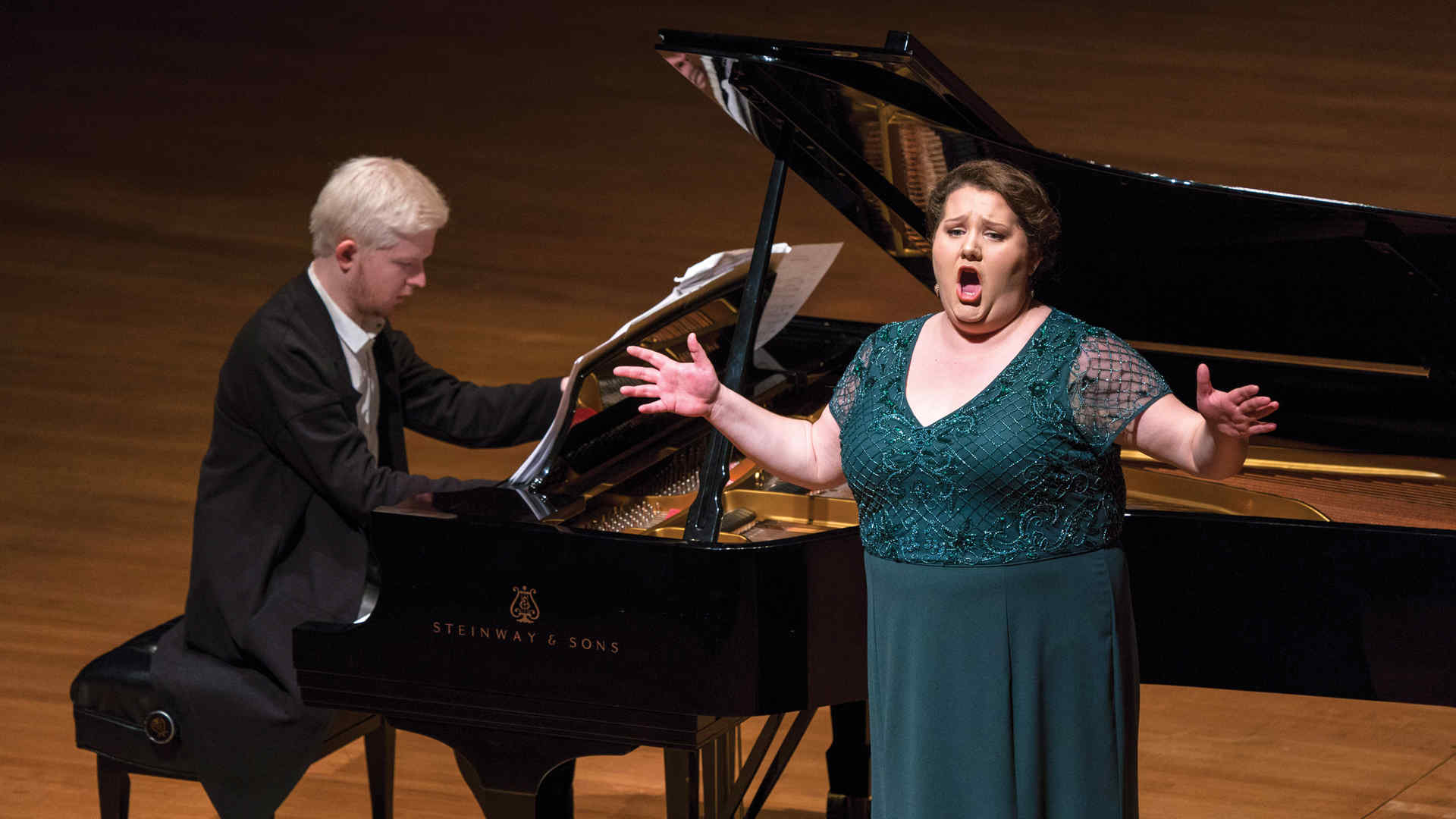
Vocal Arts Honors Recital
On May 6, 2004, Juilliard DMA candidate Lydia Brown performed at Alice Tully Hall with Juilliard baritones Anton Belov and Brian Mulligan. They had been chosen to perform as part of the Juilliard Vocal Arts Honors Recital, which has existed since 1997 as an opportunity for pianists and singers to craft their own recital programs. Brown’s first notes at the piano sang through the hall with the rich introduction of Richard Strauss’ famous lied “Allerseelen” (“All Souls’ Day”). As I listen to the recording from that evening, I can hear the strength of the interpretation and technical ability that form Brown’s particular sound at the piano, her pianistic voice. And now, 15 years after that concert, I find myself in Dr. Lydia Brown’s studio every week as she helps me develop my individual voice in preparation for my performances, including this year’s Vocal Arts Honors Recital, on March 21.
Lydia Brown became chair of the collaborative piano department last year, when Margo Garrett retired. She works with us on technique, interpretation, coaching, career professionalism, and, in my case in particular, bringing my pianistic voice from the background to the foreground of my performances with my musical partners.
To help the singer convey the text of a song, a collaborative pianist must know what the song is trying to say. At Juilliard, collaborative pianists are taught to spend time with the text of each song, learning the sung languages (including German, French, and Italian, among others) well enough to be able to sing a song while we play it on the piano. While we learn to speak the words, we also study the meaning of each word in each language, and the structure or form of each poem, in order to develop a cohesive interpretation of what the text means. When pianists know the pronunciation and the meaning of the text, we can be sensitive to how the singer performs each word.
The rehearsal process with a singer typically begins with a discussion about what the song means to each of us, and then we attempt to fit our ideas together. Amazingly, performers can discover significantly different meanings from one another in the same art song. Because of this, there have been many times when I have chosen to toss an interpretation aside in order to accommodate a singer’s interpretation. Likewise, there have been times when I have worked with singers who have been open to adopting diverse interpretations. This process demands a flexibility with both partners and a willingness to try new things. The goal in the end is communication; if the singer and pianist can work together to fuse their interpretations, they have a better chance of communicating ideas and emotions to their audiences.
So, while Dr. Brown works with me, challenging my interpretations of pieces, strengthening my ability to hear details of the singing voice, and developing my range of color and expression at the piano, she does so with the goal of allowing me to grow to be a strong, equal collaborative partner. The Juilliard Vocal Arts Honors Recital encourages and rewards successful partnerships between singers and pianists. The recital process, which includes preparation and performance, is an opportunity in which successful pairings—partners with fruitful collaboration, cohesive ideas, and effective communication—can create and present a program of art song that they are passionate about.
This year, the Honors Recital features four graduate students. Baritone Dominik Belavy and collaborative pianist Richard Fu will give a program exploring themes in Schubert lieder. And mezzo-soprano Shakèd Bar and I will perform Israeli art songs and folk songs. At this recital, audiences can expect an evening of beautiful singing and pianistic voices, a wide spectrum of rich stories and emotions, and a strong sense of friendship and collaboration.
First-year collaborative piano master’s student Bronwyn Schuman holds Arthur Gold and Robert Fizdale as well as Bernard P. and Leigh M. Seder scholarships